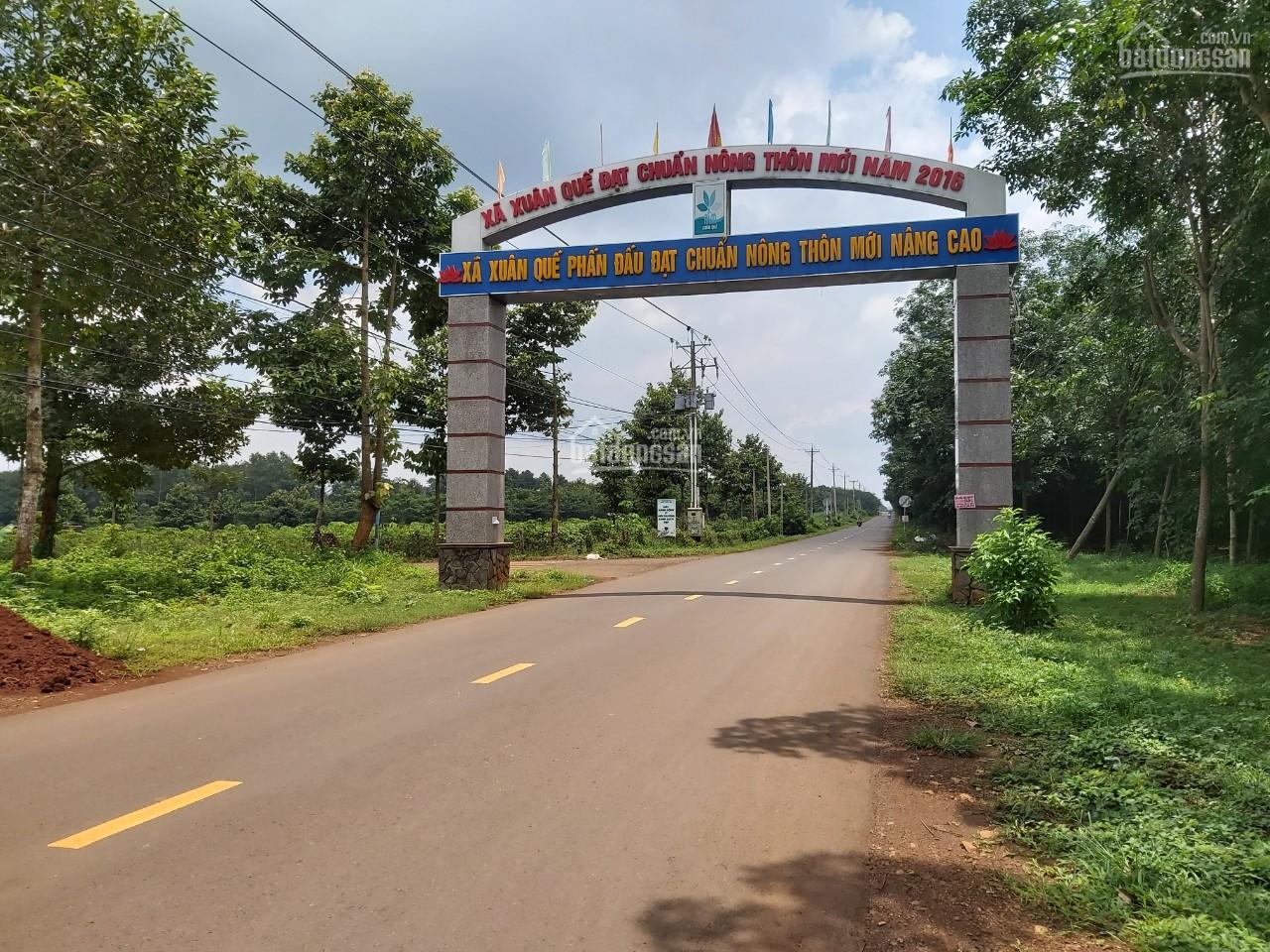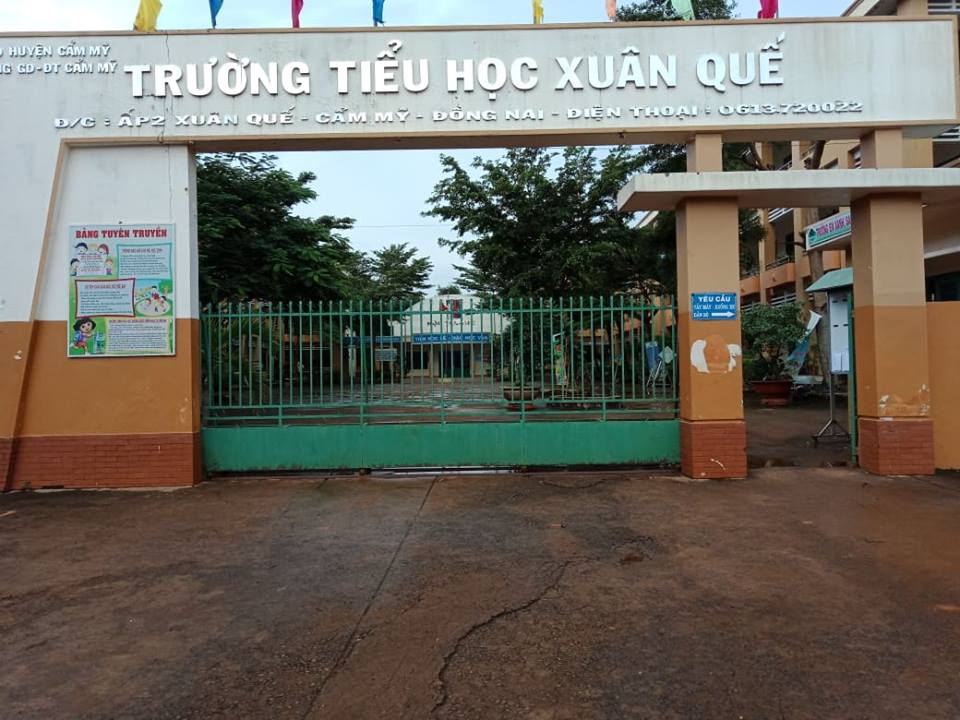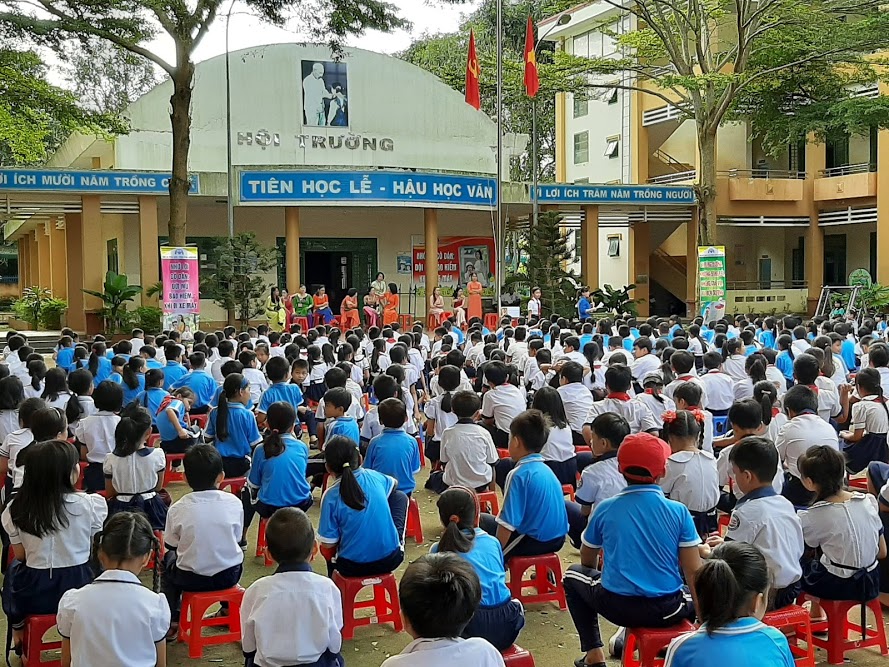1. Geographic location:

Xuan Que commune is 15 km to the north of the center
of Cam My district and has a total natural area of 4,700 ha, occupying 10.03% of
the land area of Cam My district.
+ Xuan Que borders on Hang Gon commune in Long Khanh
city and Nhan Nghia commune in Cam My district, Dong Nai province to the east.
+ Xuan Que borders on Song Nhan commune, Cam My
district, Dong Nai province to the west.
+ Xuan Que borders on Xuan Duong commune, Cam My
district, Dong Nai province to the south.
+ Xuan Que borders on Xuan Thanh commune, Thong Nhat
district, Dong Nai province to the north.
2. Administrative units:

Xuan Que commune includes 4 hamlets: hamlet 1,
hamlet 2, hamlet 57, and Suoi Sam hamlet. There is a political system including
Party Committee, People’s Council, People’s Committee, Vietnam Fatherland Front
Committee, departments, committees, and unions of the commune, 10 Party cells
like 1, 2, 3 and 4, Military Party cell, Public Security Party cell; Ly Tu Trong
secondary school Party cell; Xuan Que primary school Party cell; the medical
station Party cell; and Hoa Mi Kindergarten Party cell.
3. Terrain:
Xuan Que commune has a relatively flat and high
hilly terrain that is concentrated only in some places such as the east of
hamlet 2, the north of hamlet 1, and the places along rivers and streams with a
slope terrain.
+ Average slope: about 50-80.
+ Relative slope: about 80-150.
+ Maximum slope: about 150-200.
4. Climate:
+ Xuan Que is located in the tropical monsoon
climate with rainy and sunny seasons.
+ The rainy season is from May to October and the
sunny season is from November to April.
+ The average temperature is from 22 Celsius degrees
to 32 Celsius degrees; the highest temperature is about 36 Celsius degrees to 38
Celsius degrees; and the lowest temperature is about 16 Celsius degrees.
+ Rainfall reaches 1,956-2,139 ml/year.
+ Humidity: 53%
5. Culture and history:
Xuan Que commune was separated from Xuan Duong
commune in 1992 and divided into two communes: Xuan Duong and Xuan Que in Long
Khanh district, Dong Nai province. From 2004 to present time the commune has
belonged to Cam My district, Dong Nai province.
Xuan Que commune has had its people who have settled
here for more than a century; the first Party cell of Ong Que plantation was
established in 1937; and the Armed Forces of Xuan Que commune was established in
1945. Having experienced two resistance wars, Xuan Que commune is always an
important strategic position for our forces stationed such as Cao Su district
Party Committee and Ba Ria-Long Khanh Provincial Base. Particularly, the Cao Su
district Base and Cam Tam Communal People’s Committee Base were home to many
major forces and the places where such regional forces as the 4th Regiment of
Military Region 7, and Artillery Regiment 273 directly under the Ministry, and
the E3 army unit directly under the Ministry, the 6th Regiment under the 4th
Corps and many units of Army, Military Medicine, and so on were stationed.
On the enemy’s side, they always considered Xuan Que
as a strategic position and so they always sought to capture and control Xuan
Que area. Particularly, they encircled and kept holding the area and
continuously suppressed and removed the revolutionary bases, which caused a lot
of pain and losses to the Army and the People of Xuan Que commune. Recognizing
the sacrifice for the national liberation of the plantation of Ong Que, a
state-owned enterprise in Xuan Que commune, was awarded the title of Hero of the
People’s Armed Forces on the occasion of the 55th Anniversary of the successful
August Revolution (August 19, 1945 - August 19, 2000). Ong Que plantation
formerly known as Cam Tiem plantation in the previous Cam Liem and Cam Tam
communes, which are now renamed as Xuan Que commune. Therefore, the achievements
of Ong Que plantation are also a part of the achievements of Xuan Que commune.
After the French colonialists of the plantation went
to Ong Que plantation and exploited our people badly, our people continuously
rebelled and fought with 7 major struggles with more than 2,000 participants and
180 participants were arrested and killed.
During the resistance war against the US to save the
country, thanks to the development of self-defense forces in the plantation area
in coordination with the revolutionary forces sent for assistance, there were 35
big battles and 250 small battles that made our enemy scared, passive and
isolated; 400 troops of our enemy were killed; 1 enemy post and 4 strategic
hamlets were totally destroyed; the enemy’s battalion 45 was wiped out; 36
troops of our enemy including 5 bad guys were caught alive; more than 300 guns
of all kinds were collected; and 30 aircrafts, 4 tanks, 100 military vehicles of
all kinds, and 300 artilleries were destroyed.
In our military operations, we called for and
educated 35 plantation managers and 14 soldiers to work for us as a secret base;
mobilized hundreds of soldiers to leave our enemy forces to return to their
families or run away; and mobilized dozens of soldiers to leave our enemy to
return to the revolution and join our guerrilla forces.
Through the two resistance wars, Xuan Que’s army and
people contributed tens of thousands of tons of food and foodstuffs to the
resistance war; more than 120 young men and women escaped their families to join
the resistance war; 1,200 arrivals of people participated in and serviced the
battle and ammunition transport on the battlefields; over 500 excellent children
of the country sacrificed their lives in Xuan Que land including 4 Secretaries
of the district’s Party Committee and 2 others of the commune’s Party Committee,
and 2 communal leaders.
After April 30, 1975, the armed forces of Xuan Que
commune destroyed two reactionary organizations including organizing the Party
and destroyed a group of remnant soldiers and many gangs with weapons and
captured many escapers from camps and those committed crimes in other localities
but fled to the commune for shelter. Many people of Xuan Que wewre enthusiastic
enough to leave their families to protect the country and do their tasks for the
country and the heroic history of Xuan Que. Therefore, Xuan Que was awarded 8
honoring certificates and 48 certificates of merit; 8 heroic Vietnamese mothers
were recognized to be heroes; and 25 dead soldiers were recognized as martyrs.
The commune’s Party Committee has achieved the title
for a strong and clean Party Committee for years and in 2013 it achieved the
outstanding title for a strong and clean Party Committee; 100% of its hamlets,
agencies and units have Party cells; the State machinery is often strengthened
and improved effectively; and unions and organizations are recognized to be
strong and clean and awarded the outstanding clean title.
6. Population:

- Total number of households: 2,185.
- Population: 9,095 people.
Ethnic minority groups: there are 16 households of
Chinese Vietnamese community with 68 people; 72 households of Chau ro ethnic
group with 362 people; 1 Muong ethnic minority group with 1 person; and 2
households of Muong ethnic minority group with 3 people.
Religions: Buddhism with 153 households, Catholicism
with 40 households, and Protestantism with 11 households. Catholicism has 517
households with 2,856 followers, accounting for 31.6% of the population;
Buddhism with 756 followers, accounting for 8.3% of the population; Caodaism has
12 households with 159 followers, accounting for 1.7% of the population.
- Residential areas: 38 groups of people.